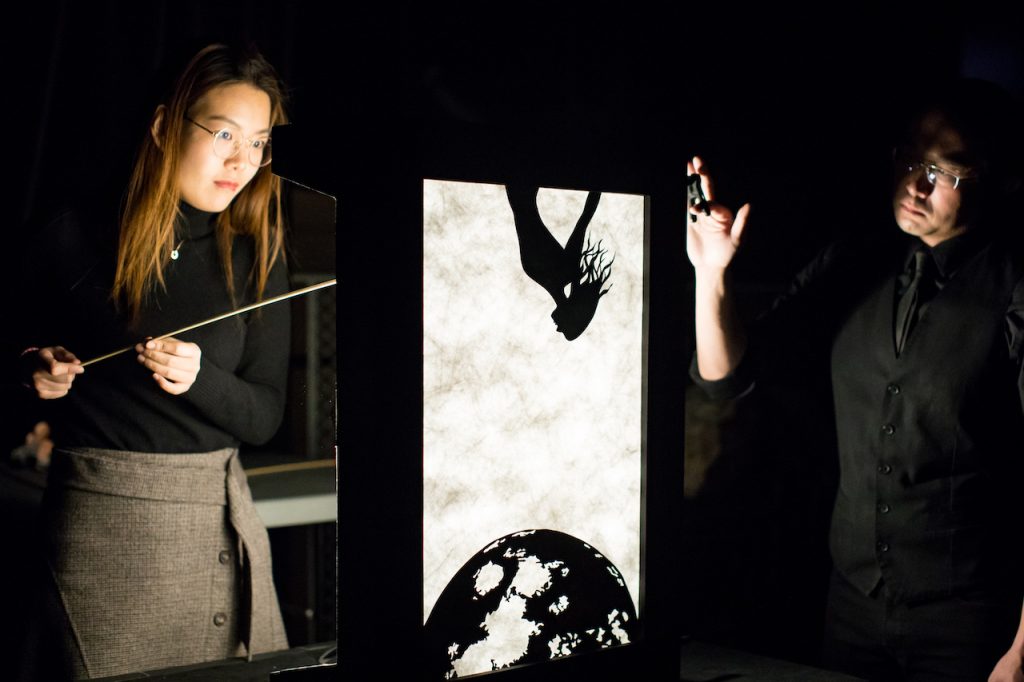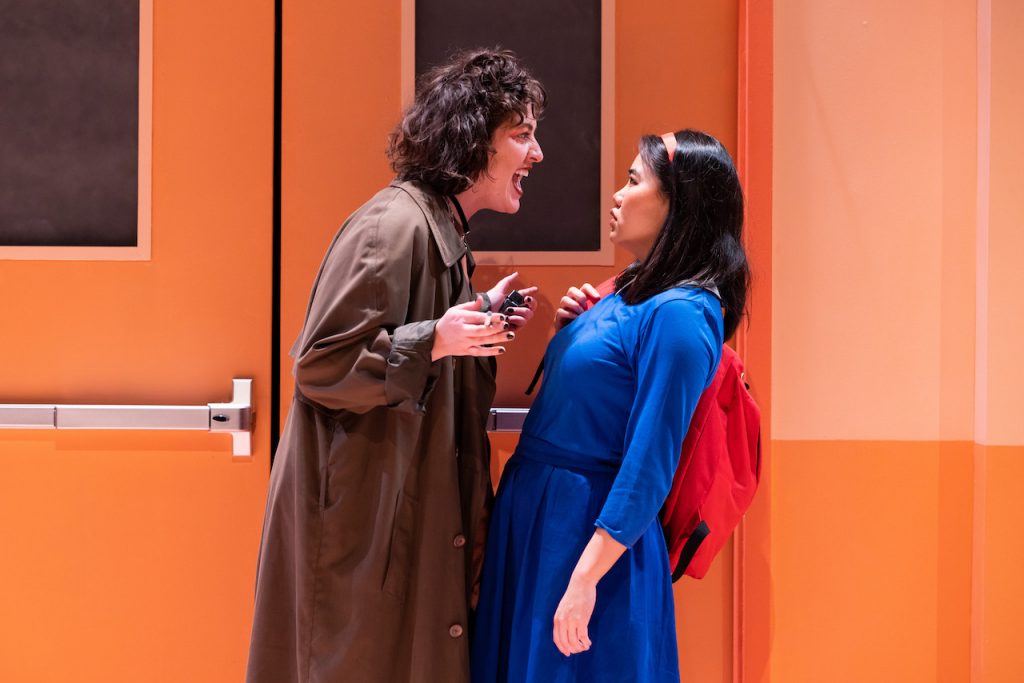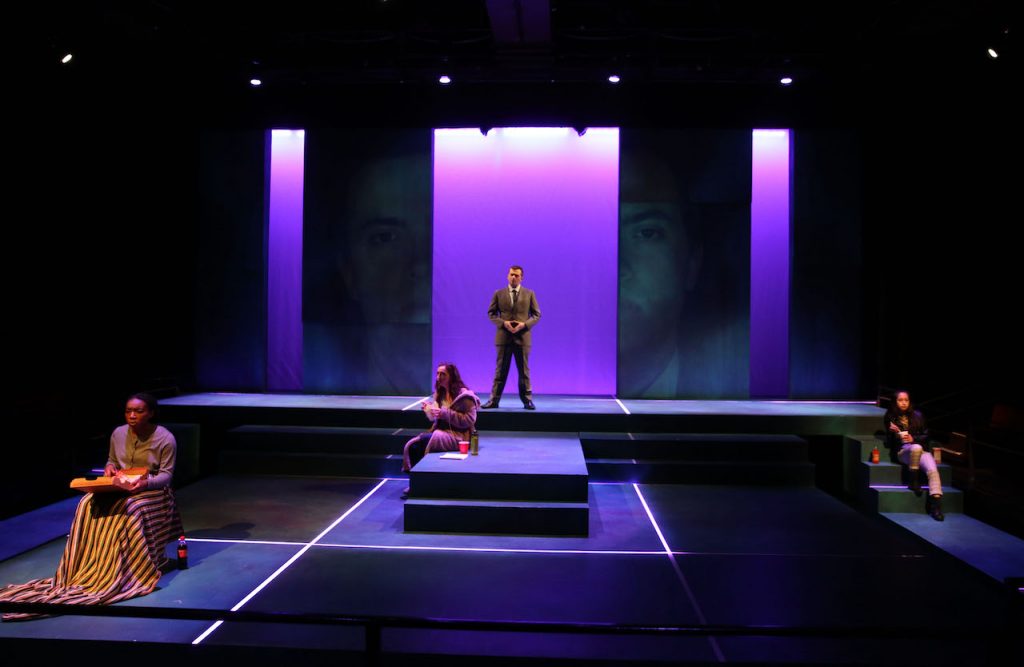By Reyn Ricafort ’25

I waited patiently for my interviewee to connect to Zoom. It was four minutes past our scheduled meeting time, but I attributed her delay to the grievances of daily life. After all, she is a professor and academic, immune to the silly mistakes we humans make on a daily. After three more minutes of nothing, I began to hyperventilate and sent her an email telling her that I was in the waiting room and to let me know if perhaps a different time would be better…still, no response. At this point, I began to worry that something grave had happened or that I had made a mistake and was thoroughly in the middle of a breathing exercise to calm my anxiety when-
*PING*
I checked my notifications.
“Hi Reyn, I am so sorry! My Wifi router was disconnected for a while and now it’s working!”
Okay, so she’s not dead. I immediately logged back into Zoom and was ecstatic to see Professor Ji Won Jeon smiling radiantly at me, her eyes and expression tinged with apologetic remorse. The whole ordeal was trivial, but it was a slight reminder that despite the air of perfection I tend to associate with professors, they are still human, vulnerable to the same annoyances we students must deal with on a daily basis. A rather philosophical reflection on such an unimportant event, but it turned out to be the perfect note to start on as we began our interview by first talking about Ji Won’s “accidental” beginning in the theater, a story that further emphasizes her humanity as she connects the theater back to her sense of self and personal development.
Below is a representative dialogue of my interview with Professor Ji Won, extrapolated from my memory to the best of my ability.
RR: Professor Ji Won! It is so nice to finally talk to you one-on-one.
JJ: Thank you, it’s nice to finally talk to you too!
RR: So, to begin our interview, talk to me about your background and where you are from.
JJ: Right, so I was born in Daejeon, Korea, and lived there for a while until sixth grade when I moved to Shanghai, China with my family. There, I studied at an international school and now that I think about it, most of my academic life was spent in different countries. Like, for my undergrad, I went to USC in California and studied theater there. Oh, and that’s actually where my love for the theater really started because I was originally a neuroscience major – I was very studious, academic, and interested in STEM for a large part of my academic life before college – but it wasn’t until I was exposed to the theater at USC when it became a possible path for me.
RR: Not even in high school?
JJ: No, I never got to see a play! I was very science-focused and loved biology – I wanted to be a biologist – and it wasn’t until after high school actually, when I saw a production of the musical Cats in Shanghai that I experienced the beauty of theater for the first time. I remember being so fascinated with how they physicalized the cats with the human actors. I would say that that was my true first experience with live theater and musicals for that matter.

RR: That’s really interesting, considering how far you’ve come in your theatrical career.
JJ: Yeah, and it’s funny because it all started when I accidentally took a stage management class at USC, a class that I had initially thought was a business management class in the arts industry. Despite the mistake, that class opened a door for me into the dramatic arts, and I remember being so enamored by how passionate theater students were. You know, growing up, I was a very shy student and to some extent, I still am. But, after discovering the theater, I noticed how my desire to learn encouraged me to break out of my shell. Suddenly I was talking more, communicating more, and taking leadership! Leadership! Like, that’s crazy considering how introverted I am. It’s safe to say that the theater changed me as a person and in turn my life. My passion for theater is very different from the passion I had when I was a STEM student. It’s more honest and visceral, as opposed to the almost mechanical passion I had for STEM.
RR: I totally relate with you. As someone who has dabbled in STEM for a large part of his academic life pre-college, I totally understand. Now, I know that you went to Northwestern for your MFA in directing. Could you talk to us more about why you chose directing and not another area, like acting?
JJ: Yeah, so since I started out as a stage manager at USC, I stage-managed a lot of the productions and really got to see the artistic freedom of directors during the process; there was an allure to being in a leadership position. Plus, I’m too shy to be an actor (giggles). I wanted to be a leader in the artistic process, specifically within the pockets of collaboration that make theater possible. Unsurprisingly, it was through directing that I could challenge my shyness because being creative allows me to be myself. I was freed!
RR: Freedom!!!
JJ: Yes! And, I actually didn’t go to Northwestern right away. I went back to Korea after undergrad and was a freelance director and producer for small professional Korean companies. I did that for about three to four years before coming back to the states to get my MFA.
RR: Any noticeable differences between American theater and Korean theater?
JJ: So, the only difference really is that smaller Korean theaters tend to have longer rehearsals, like three to four months as opposed to the four to five weeks in America. Longer rehearsals also give company members more opportunities to work together and to do tasks that may not be within their field of responsibility which really enhances the collaborative nature. In America, it tends to be pretty systematized.
RR: So, over the past few years, as conversations around race, representation, and diversity have become more nuanced, the theater has rightfully begun to be more considerate of including diverse stories into the mix. As a fellow Asian, like myself, what do you make of this?
JJ: Yeah, so coming from a monoethnic country like Korea, talks of race and diversity were never really a focal point. So, you can imagine my fascination when I came here and realized how important of a topic it is in American theater and in society in general. I mean, it makes sense, America is known as the melting pot. I mean, it’s crazy how most of the leadership roles in major theaters are run by white men, like ninety percent in top Broadway musicals.

RR: With these disparities in mind, what role do you see the theater playing in remedying the lack of diversity?
JJ: Well, although I don’t see the theater as an exact mirror to society, I do believe it shows where we are as a community, which means we need to uplift and showcase diverse stories onstage. You know, American theater has historically been focused around white stories, even feminist ones, so I think it’s really important that we make an effort to include stories from minority groups and marginalized peoples to truly diversify the stage. I also believe it’s important to be forthcoming with these stories and not hesitant out of fear that one might be offensive or “wrong”. While I understand and appreciate the gentle approach, the beauty of theater, especially collegiate theater, is its ability to ask important questions about our society to jumpstart difficult conversations.
RR: Lastly, what have you enjoyed about Skidmore so far and what do you look forward to?
JJ: I mean I’ve only been here for two months but so far it’s been a great experience! I love my classes and students. I love how passionate everyone is about theater and how willing people are to do the work, which is very important in this field. I’m really looking forward to directing a staged reading of a show that I choose, preferably one that highlights the Asian experience.
RR: Well Professor Ji Won, thank you so much for talking with me! It was really nice to get to know you more. I’ll see you this Friday at the selection committee!
JJ: Ah yes! Thank you, I’ll see you there!
And with that, I waved goodbye.
